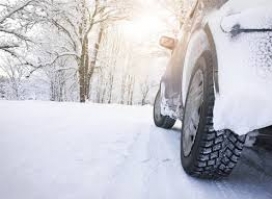Barbecue Season Is In Full Swing: Don’t Go Up In Flames
The joys of outdoor cooking also bring fire and associated risks. Here are some safety reminders for gas and propane barbecues to protect you and your property from harm or damage.
• Never operate a barbecue in an enclosed space, close to a structure, or near combustibles. Have a one metre radius around it free of obstructions.
• Keep your barbecue in tip top shape. Check for hose breakage, valve leaks, and other parts before securing the tank well and turning on the gas.
• When in use, never leave the grill unattended, and when finished turn the tank off before the burners so the remaining gas in the lines can burn off. This can help prevent a flash the next time the BBQ is in use.
• Make sure your fire extinguisher is easily accessible and in good working order.
Additional Tips
• Propane companies use an additive to create an unpleasant odour like rotten eggs to make a propane leak easier to detect, so you can shut off supply immediately, stop using the grill, and clear the area.
• Although the risk of carbon monoxide is low when using a BBQ outdoors, it is not entirely eliminated. Learn to recognize the signs of CO2 poisoning and take appropriate action.
• Store propane tanks in an upright position, in a spot where they are unlikely to be knocked or bumped to prevent any safety risk.

According to a national survey, shorter daylight hours, driving through snow, scraping off ice, cold temperatures, and sudden weather changes can adversely affect both driving conditions and the person’s mood behind the wheel. Adjusting your driving habits and state of mind accordingly will help meet winter’s driving challenges.
Having your vehicle free of ice and snow, especially as it affects visibility, is a key safety measure. Effective wiper blades and adequate windshield washer fluid greatly improve visibility. Keep an extra set of replacement blades in your winter safety kit and an extra jug of fluid in your trunk.
If you are found to be at fault in an accident, and your visibility was affected by a buildup of ice or snow, you could be charged with driving with an obstructed view. Without claims protection coverage, your premium could increase as much as 30% with one at-fault accident.
Other common sense tips, regardless of the weather are: tire rotation every 5 months (to ensure even wear), annual brake inspection (squealing brakes mean the pads need replacing), and regular oil changes (you have 2 weeks from the time the message “oil needs changing soon”).
For more information visit these sites.




 W.H. Williamson & Co. Limited
W.H. Williamson & Co. Limited




